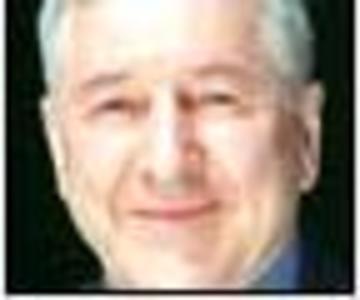The Pied Piper of Quebec
Jacques Parizeau's ‘happy ending' ignores the Supreme Court's onerous conditions for secession
Parizeau relance le projet de souveraineté
It's a con job, titled La souveraineté du Québec: Hier, aujourd'hui et demain. Its climax, the happy ending foretold, is achieving Quebec's independence demain.
Jacques Parizeau's latest pitch for secession is dishonest and reckless. He took the country to the brink with the close call of the 1995 referendum. Now he issues this new clarion call to launch the Québécois once more unto the breach.
But something has changed since 1995, and it's not the former premier. The Supreme Court pronounced itself on the conditions for secession in its reference response of Aug. 20, 1998. It clarified the confusions and evasions that made possible Mr. Parizeau's 49.4 per cent of the vote in a referendum where the stake, despite rhetoric about a negotiated “partnership,” was a unilateral declaration of independence unless Canada accepted Quebec's terms.
He made no bones about it: A single Yes vote above 50 per cent would have led to secession regardless of what Canada did. He said so plainly in his 1997 book, Pour un Québec souverain, causing some consternation in separatist ranks. He repeats it now in his new book. Perhaps his clearest statement was made in an interview on CPAC, when he contrasted his referendum with the 1980 vote, when premier René Lévesque promised that there would be no sovereignty unless Canada agreed to an economic association.
“The first great difference between 1980 and 1995 is that we were holding [in 1995] a referendum to achieve sovereignty, and not to negotiate it. There are still analysts who have not caught on to the fact that the difference between 1980 and 1995 is that in 1995, we went for keeps. If we had won by 26,000 votes in the other direction, I was going for it, I would have done it.”
In his account of 1995, the happy ending would have come if 26,000-odd people had changed their No to a Yes. But prime minister Jean Chrétien stated clearly after the vote that he would not have considered a close result as a mandate to secede. A confrontation would have certainly ensued, with devastating consequences for the economy and civil peace.
Today, we have the elucidation of the Supreme Court, but Mr. Parizeau twists and distorts it shamelessly. He ignores the onerous conditions set by the court for a legal secession. The court recognized that two paths could lead to Quebec's independence: a legal secession, enabled by a constitutional amendment preceded by an agreement respecting the rule of law, the federal principle and the rights of minorities. Or independence could be achieved de facto by revolution, setting aside constitutional order by a unilateral declaration of independence, then obtaining recognition of Quebec by the international community.
This is the course that Mr. Parizeau again proposes, recognizing that Quebeckers could never agree to the sacrifices required for a legal secession. But he never acknowledges that his proposed unilateral declaration would be revolutionary. It would pit the government of Canada, committed to the rule of law, against the revolutionary government of Quebec, and lead to court challenges and serious conflicts among Quebeckers. The easy international recognition assumed by Mr. Parizeau is most unlikely in a United Nations established on the sovereignty of existing states.
He lures Quebeckers with a Pied Piper's melody. But his spin on reality shows when he quotes selectively the report of five eminent experts in international law consulted in 1991 by the Quebec government. “The unanimous conclusion of their legal opinion is quite clear: The frontiers of a sovereign Quebec would be those of current Quebec.”
But Mr. Parizeau seems to forget that he published a letter in which he accused the Supreme Court of favouring the partition of a seceding Quebec. And he omits more pertinent quotations from the five experts: “The right to secession does not exist in international law.” And this: “The Quebec people exercises effectively its right to self-determination within the framework of the Canadian whole and is not legally authorized to invoke it to justify its future accession to independence.”
On May 19, 1994, Mr. Parizeau told the National Assembly: “There is the law. We are a law-abiding state. Canada and Quebec are not banana republics. There is the Constitution. There is international law. And we have been elected to defend the law.” After that beginning, he argued that Canada was divisible but Quebec was not. The law be damned.
Mr. Parizeau's flights of mythology would be amusing but for the ascendancy he holds as Quebec's most influential separatist. The crowds at his book launch Monday proved that. As such, he is more dangerous than ridiculous.
William Johnson is an author and a former president of Alliance Quebec.

William Johnson53 articles
William Johnson, a Quebec journalist, is a former president of Alliance Quebec


















Laissez un commentaire Votre adresse courriel ne sera pas publiée.
Veuillez vous connecter afin de laisser un commentaire.
Aucun commentaire trouvé